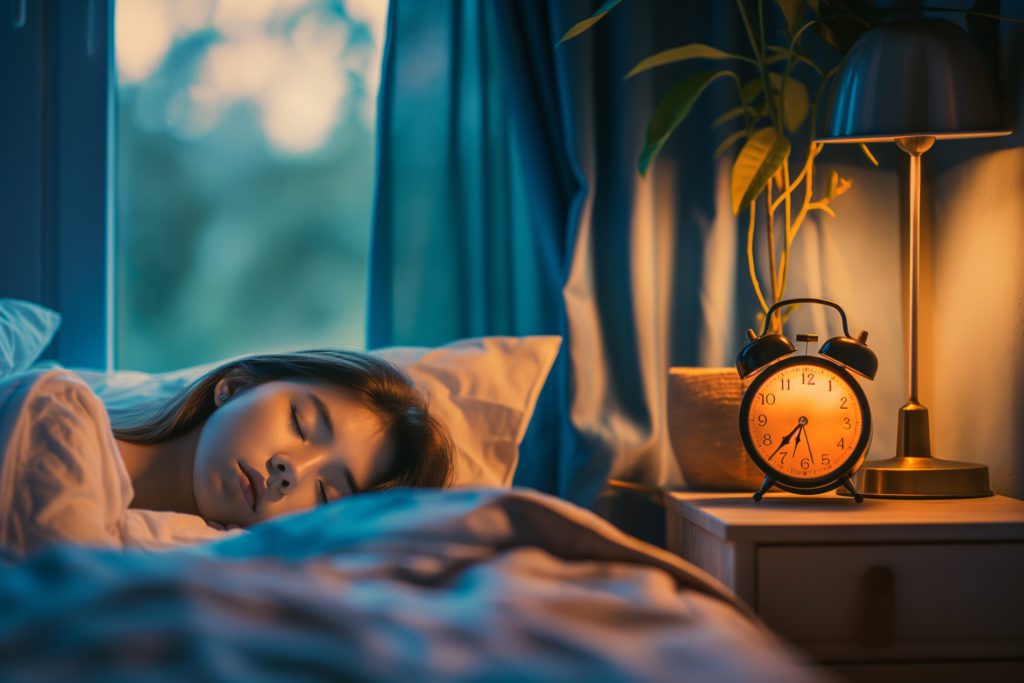
5 Ways Sleep Deprivation Affects You
Learn how sleep deprivation can affect your health and well-being, including what health risks increase. Discover tips for getting more sleep each night.

Are you not getting enough shut-eye at night? It’s all too common, yet beyond the fatigue that plagues you the following day, sleep deprivation can have some significant health effects, such as lower immunity and a poorer mental state.
If you’re not feeling your best, you may just need more sleep.
Sleep deprivation can happen sooner than you think, as well. It’s recommended for adults to get between 7-9 hours of sleep each night, so if you get less than this, you’re sleep-deprived. Your sleep debt (how much sleep you’re missing out on) can accumulate as well, so the more nights that you don’t get enough sleep, the more sleep-deprived you’ll be.
Let’s explore how sleep deprivation can affect you to see how crucial getting enough sleep at night is.
How Does Sleep Deprivation Affect You?
Sleep is vital, meaning sleep deprivation, or any time you get less sleep than your body needs, can significantly affect your health.
Let’s explore 5 ways sleep deprivation can affect your health and well-being.
Thinking, Concentrating, and Remembering Becomes Impossible
Your central nervous system (the brain and spinal cord) is responsible for sending and processing information, but it requires sleep to function properly.
In terms of memory, during sleep, your brain forms pathways between nerve cells in the brain, and these pathways help you remember new information that the brain has deemed important enough to hold onto. Without enough sleep, your brain cannot make these pathways, and information is forgotten.
Your body’s signals may also be delayed due to sleep deprivation, making it harder to concentrate during the day. If you can’t focus at work or struggle to think through a problem, you might need more sleep.
Accidents are More Likely
Being sleep-deprived makes you drowsy during the day, increasing your risk of an accident since you’re not paying attention as well as you could after a full night of sleep. The delayed response of your nerve cells due to sleep deprivation can also decrease your coordination, making accidents more likely since your response time is off.
Weakens Your Immune System
While you’re asleep, your immune system is hard at work producing protective, infection-fighting substances such as cytokines and antibodies. These substances are crucial for fighting bacteria and viruses and heading off an infection before it can set in or become severe.
However, when you don’t get enough sleep, your immune system doesn’t have enough time to fully replenish its store of these infection-fighting heroes, so your body cannot defend itself as well from infection. This means that you may get sick more often, and it can take you longer to recover.
Contributes to Weight Gain
Not getting enough sleep can contribute to weight gain. This is because sleep influences the production of the hormones leptin and ghrelin—leptin is responsible for telling your brain that you’re full, while ghrelin sends signals of hunger.
When you don’t sleep enough, your brain raises ghrelin and reduces leptin, likely as a method to replenish energy levels in some other way. This alteration in hormone levels may be why you find yourself needing a late-night snack, but it can also contribute to overeating.
The fatigue associated with sleep deprivation may also make you feel too tired to exercise, with a continual lack of physical exercise potentially contributing to weight gain.
Disease Risk Increases
The risk of multiple diseases can increase if you’re sleep-deprived.
Those who do not get enough sleep are more likely to get cardiovascular disease because sleep promotes the processes that protect your heart and blood vessels. Specifically, these processes keep blood sugar, blood pressure, and inflammation at a normal level. Without sleep, these levels can become irregular, damaging the cardiovascular system.
The risk of type 2 diabetes also goes up if you’re sleep-deprived. This is because sleep deprivation is associated with insulin resistance, with insulin being a hormone crucial for processing glucose in the body. With insulin resistance, your blood sugar level can rise, leading to diabetes. For those who already have diabetes, sleep deprivation can make it harder to manage.
Tips for Getting More Sleep
Sleeping isn’t equivalent to laziness. Our bodies need enough sleep each night to fully recover from the day and prepare for the next one, so you’re doing your body a disservice if you don’t let it sleep for long enough. With health repercussions that include greater accident and disease risk, sleep deprivation may even be life-threatening.
If you’re suffering from sleep deprivation, your most important course of action is to get more sleep. There are two tactics for this: giving yourself enough time to sleep and implementing habits that will help you fall asleep.
Start by determining how much sleep you ideally need each night. Most adults need between 7-9 hours, but the best way to figure out how much sleep you need is to see how long you sleep when you don’t have an alarm going off, such as on the weekend or a day off.
Once you know how much sleep you need, schedule your bedtime early enough to get that much sleep (and tack on 15 minutes for falling asleep). So, if you need 7 hours of sleep and need to wake up at 6 a.m., you should go to bed at 10:45 p.m.
Now that you know when to go to bed, do what you can to ensure you’re in bed by this time.
What about if you give yourself enough time to fall asleep, but you lie awake at night? That’s where good sleep hygiene habits come in, such as:
- Keeping your bedroom cool, quiet, and dark
- Avoiding electronics before bed
- Listening to soothing music
- Avoiding large meals right before bed
- Exercising during the day, but not too close to bedtime (ideally, in the morning)
- Getting sunlight when you first wake up
These habits will help you fall asleep easier so you can guarantee yourself enough sleep each night.

Written by
Jessica G
Medical writer freelancer who has written hundreds of articles on varying topics. Masters of Engineering degree in Biomedical Engineering.
Download Pillow
Get help
Press & News
Legal
Connect
X (Twitter)
Company
Copyright © Neybox Digital Ltd.



